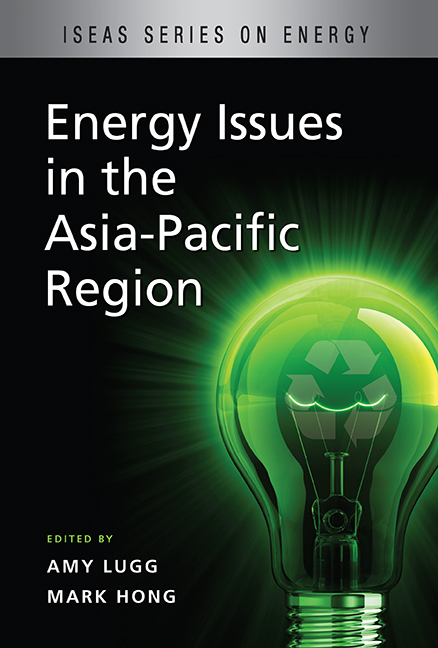Book contents
- Frontmatter
- Contents
- Foreword
- Preface
- The Editors
- The Contributors
- SOUTHEAST ASIA
- 1 The ASEAN Countries' Interest in Asian Energy Security
- 2 Biofuels Development and Prospects in the Philippines
- 3 The Biofuels Industry in Indonesia: Opportunities and Challenges
- 4 An Overview of the Cambodian Energy Sector
- INDIA
- CHINA
- UNITED STATES
- JAPAN
- ALTERNATIVE ENERGY SOLUTIONS
- Index
2 - Biofuels Development and Prospects in the Philippines
from SOUTHEAST ASIA
Published online by Cambridge University Press: 21 October 2015
- Frontmatter
- Contents
- Foreword
- Preface
- The Editors
- The Contributors
- SOUTHEAST ASIA
- 1 The ASEAN Countries' Interest in Asian Energy Security
- 2 Biofuels Development and Prospects in the Philippines
- 3 The Biofuels Industry in Indonesia: Opportunities and Challenges
- 4 An Overview of the Cambodian Energy Sector
- INDIA
- CHINA
- UNITED STATES
- JAPAN
- ALTERNATIVE ENERGY SOLUTIONS
- Index
Summary
ABSTRACT
Economic growth is a goal and an aspiration of developing countries such as the Philippines. The challenges to economic growth presented by the escalating prices of petroleum product imports have motivated governments to consider localized and renewable sources of energy as a major aspect of the countries’ energy supply. For the Philippines, an essentially agricultural economy, one option is to develop renewable energy resources, particularly biomass-based feedstock. As a result, localizing energy supply by exploring and developing renewable energy has always been a part of the country's priorities since energy planning was institutionalized there in the 1970s.
INTRODUCTION
The Department of Energy (DOE) is the primary agency of the Philippine Government mandated to develop and implement the overall agenda for the energy sector. The agenda is embodied in the Philippine Energy Plan. Developing the alternative/renewable energy sector through the Alternative Fuels Program is among the components of the Philippine Energy Plan. The DOE emphasis on the harnessing and utilization of renewable energy comprises a critical component of the government's strategy to provide energy supply for the country. This is evident in the power sector, where increased generation from geothermal and hydro resources has lessened the country's dependence on imported and polluting fuels. In the government's rural electrification efforts, on the other hand, renewable energy sources such as solar, micro- hydro, wind, and biomass resources are now used on a wide scale. Based on current projections of the DOE, renewable energy is foreseen to provide up to 40 per cent of the country's primary energy requirements over the ten-year period beginning in 2003. Although its share will decline in relation to the total figure, renewable energy is estimated to grow at an average annual rate of 2.4 per cent in absolute terms. Biomass, micro-hydro, solar, and wind will remain the largest contributors to the total share of renewable energy in the energy mix, with an average share of 27.5 per cent. Meanwhile, hydro and geothermal will contribute the balance and continue to be significant sources of electric power.
- Type
- Chapter
- Information
- Energy Issues in the Asia-Pacific Region , pp. 24 - 45Publisher: ISEAS–Yusof Ishak InstitutePrint publication year: 2010



